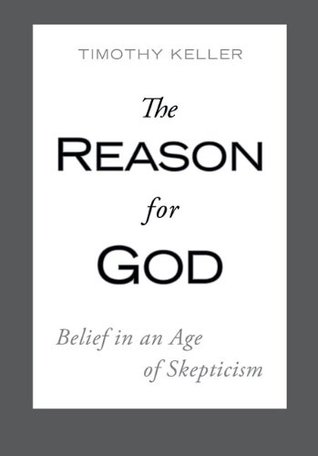5 out of 5 stars *****
A brief background about Andrew Jackson's beginnings and his perseverance in most difficult situations preludes the Battle of New Orleans. This city is crucial for control of the territory west of the Mississippi River and the wealth such a port provides via trade from Northern and Midwestern regions in North America. If the British capture the city, America could easily collapse as a new country. The British destruction of Washington D.C. scatters the United States government into survival mode. Recent military victories at Fort Henry and Pensacola bolster US spirits but the battles are without reinforcements from a centralized government and a Secretary of War, James Monroe, who recently adds that hat to his Secretary of State collection, an onus he accepts from President Madison due to the casualties of war.
The author narrates this well-written account with excitement and energy. Brian Kilmeade provides readers with his passion for the subject. He acquaints his audience with the characteristics that set Andrew Jackson apart from most of his contemporaries.
The Battle of New Orleans showcases Jackson's talent as a tactician, leader, and inspiration to those who follow and fight with him. The man makes enemies as easily as he makes decisions and he is a decisive individual who assesses men, animals, terrain, and his enemy better than most. Kilmeade describes the genius behind events, how outnumbered and over-matched people come together to repulse the mighty British Navy and sophisticated, seasoned soldiers in the climax. This historical turning point in America's story exists because of a sense of duty and drive of one man, General Andrew Jackson.
4 out of 5 stars ****
A nineteenth century dying man dreams about being transposed into thirteenth century England, Camelot, where he uses his Yankee wit and ingenuity to survive. He encounters knights, noblemen, peasants and wizards. He not only survives, he rises to a rank that makes him a feared opponent throughout England and a prosperous friend and adviser to the King. He gives himself the title, The Boss. Humor keeps the story moving along as The Boss anticipates and plans maneuvers to stay one step ahead of his dazzled subjects. Merlin the magician, once bested, is a major protagonist in the plot because of his lost prestige.
Mark Twain writes this story using the Old English vernacular for the simple folk and the pompous Royal King's English for King Arthur's Court. Twain masters the dialect appropriate for each character spoken expertly by narrator, Nick Offerman. The author's use of this historical fantasy setting and an epic tale of chivalry breathes life into his own story that applies future principles to yesteryear's issues. Twain leaves his mark on Camelot as only he can.
5 out of 5 stars *****
A joy encounter with greatness, I learn about the athletics, friendly temperament, and magnetic pull of the horse with a misspelled name, American Pharoah. Everyone who cares for this Triple Crown Winner falls in love with his personality and grace. Birther, trainer, rider, and owner are characters who reveal magnificence when they describe the journey of the foal, colt, pony, horse. Bob Baffert, the trainer, tells how easy his favorite horse makes winning.
Baffert is modest in giving the horse all the credit even though he claims American Pharoah is built for speed and hardly needs any prodding to kick into high gear. The trainer discovers early on that this horse becomes unsettled by loud noise and disruption in his normal routine. Baffert puts earplugs in the young horse's ears for a while while training him and American Pharoah overcomes the impediment that would make him inconsistent and prone to injury by being overwrought.
The colorful world of the oldest sport in America unfolds in this book with its accounts of the big money, international players, and bigger-than-life personalities unafraid to show their emotions for the people and animals that become significant parts of their lives. A deep appreciation for the work ethic, devotion, and humanity that goes into horse racing is with what I come away.
I finish this book the day after Bob Baffert accomplishes the feat that eludes him by a nose more than once, once more. Another Baffert trained horse, Justify, wins the Triple Crown for 2018. I, now, feel part of his story thanks to Joe Drape's professional, engaging abilities as an author and Aaron Abano's excellent narration.
5 out of 5 stars *****
The best qualities in men are shaped by the suffering and trials they overcome on their path of maturation. God's will is not always man's because free will allows choices based on desires within this world where mankind is mortal flesh. To be a man who inspires others but, more importantly, praises God, requires selflessness to serve and complete surrender to trust in God.
Patrick Morley uses ten men in the bible to demonstrate how God makes men according to His will and not their own which tries to make God a servant to their desires. Thought-provoking questions follow each chapter. They arouse insight and introspection within the reader. Accounts of divine intervention reveals Abraham's faith, Joseph's perseverance, Moses' humility, Gideon's courage, David's heart, Solomon's wisdom, Nehemiah's zeal, Job's integrity, Peter's boldness, and Paul's passion. This book aligns man's efforts to the will of God for His glory and man's well being.
5 out of 5 stars *****
This Audiobook is a pleasure because of its subject and enthusiasm of the author in his presentation. Drout's understanding of Tolkien from his personal perspective captivates an audience in this scholastic effort to explain the genius behind Western literature's most widely read author. This student's appreciation of the Hobbit, Lord of the Rings, and the Silmarillion is greater and fresher in my mind now that I finish this class by a real Tolkien fan, Michael D.C. Drout.
5 out of 5 stars *****
This is a well written, true story about espionage and investigation by those who are elite in their field and how bureaucracy between agencies can bog down efficient efforts to resolve cases. The job takes its toll on families and personnel as intrigue and intellect carry this interesting plot without hot pursuits and buckets of blood.
Joe Navarro is the protagonist and author. Opportunists, Clyde Conrad and Rod Ramsey, are genius antagonists. George Newbern narrates through the protagonist, who has an uncanny ability to read body language and retain details without taking notes. Minor characters are fleshed out enough to support major characters and contribute their personal qualities necessary for continuity and flow in this drama of perilous possibilities that can topple power in a precarious world. Thank God for the talent and integrity of the duty-bound men like Joe Navarro.
5 out of 5 *****
My faith is deeper and apologetics stronger after listening to The Reason for God: Belief in an Age of Skepticism. Timothy Keller narrates his book that talks to our innate soul. He produces evidence and corroboration of what the Bible says today as legitimate to what is presupposed to be the Word of God. More than this, Keller appeals to that center in all of us that we call a conscience. It is in this realm that we sense wrong from right and question ethics and morality. The greater theme is our search for that which is greater than ourselves.
Society is trending toward separation of God from the secular. Logic and reasoning dictates that if we accept a triune God then such a separation is impossible since the Creator is intimate with His creation. Non-believers and skeptics rely on their own assumptions that fall short of explaining the uniformity of the universe. For us believers practice of our faith becomes harder but not impossible in today's environment.
Some say that God would never punish His creatures He loves. They have many questions about the nature of God and arrive at a conclusion that permits them to have it their way without fear of any consequences for their actions. This way of thinking comes from those who won't accept the Bible as His Word. Many assume their answers to their questions without even reading the Bible which is authoritative and distinct when it answers such concerns.
A profound idea comes out of this book about judgment. On the Day of Judgment we may say to God, "Thy will be done," but Jesus will turn our very words on us, "Thy will be done." If I live my life for myself and exercise my will for my personal benefit, then my life does not depict what my words intend. God is not condemning anyone to Hell; rather, we condemn ourselves to Hell by the choices we make while here, on Earth.






